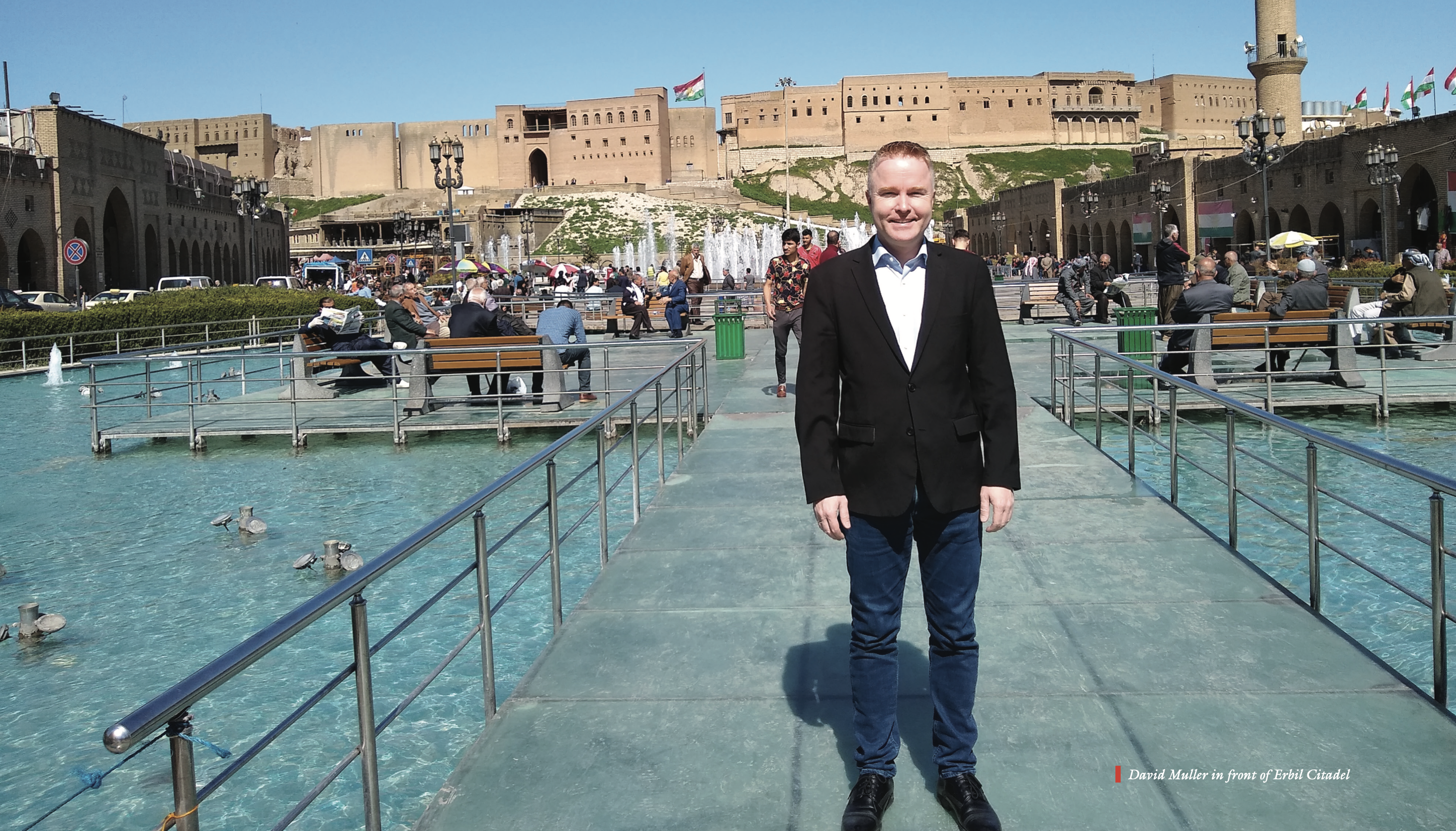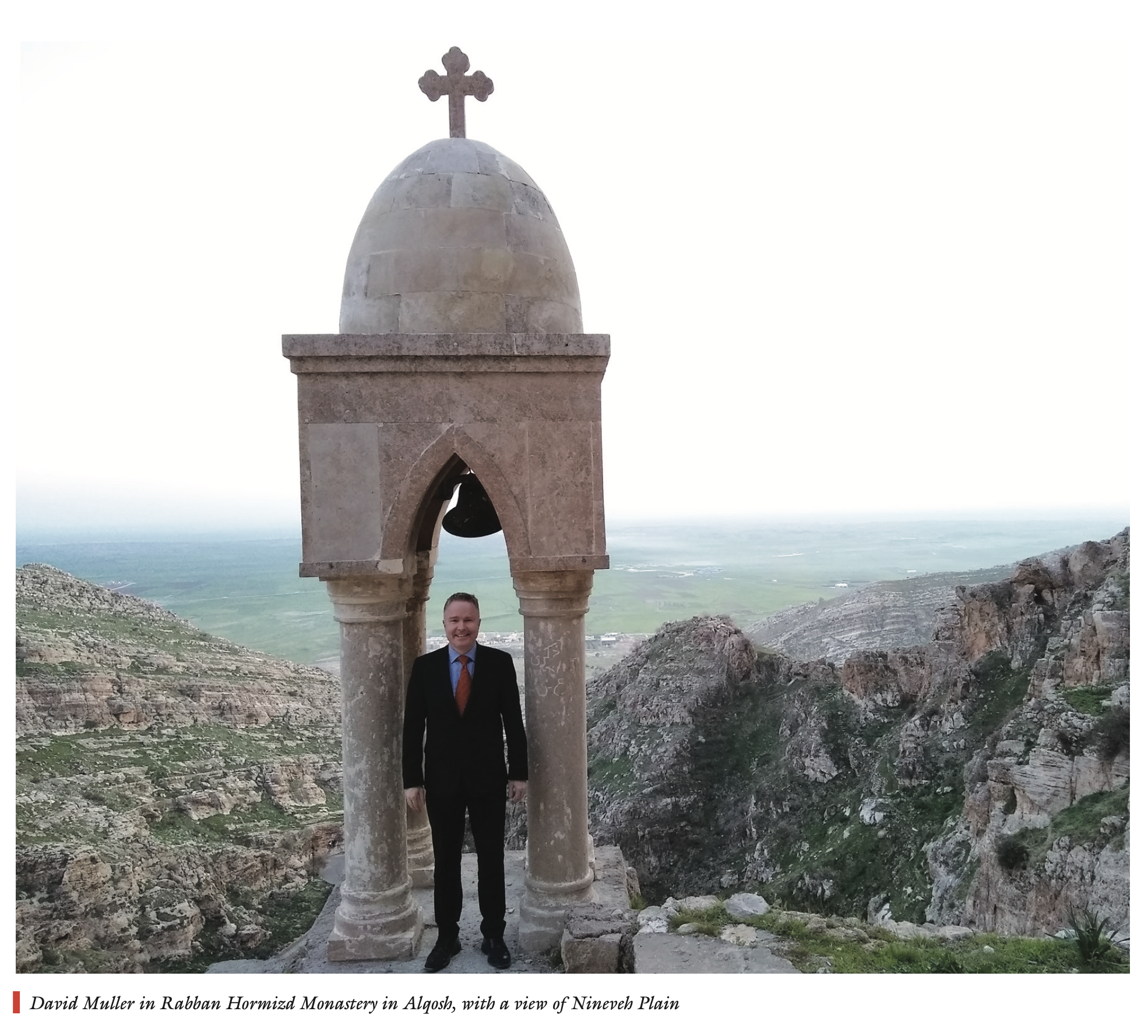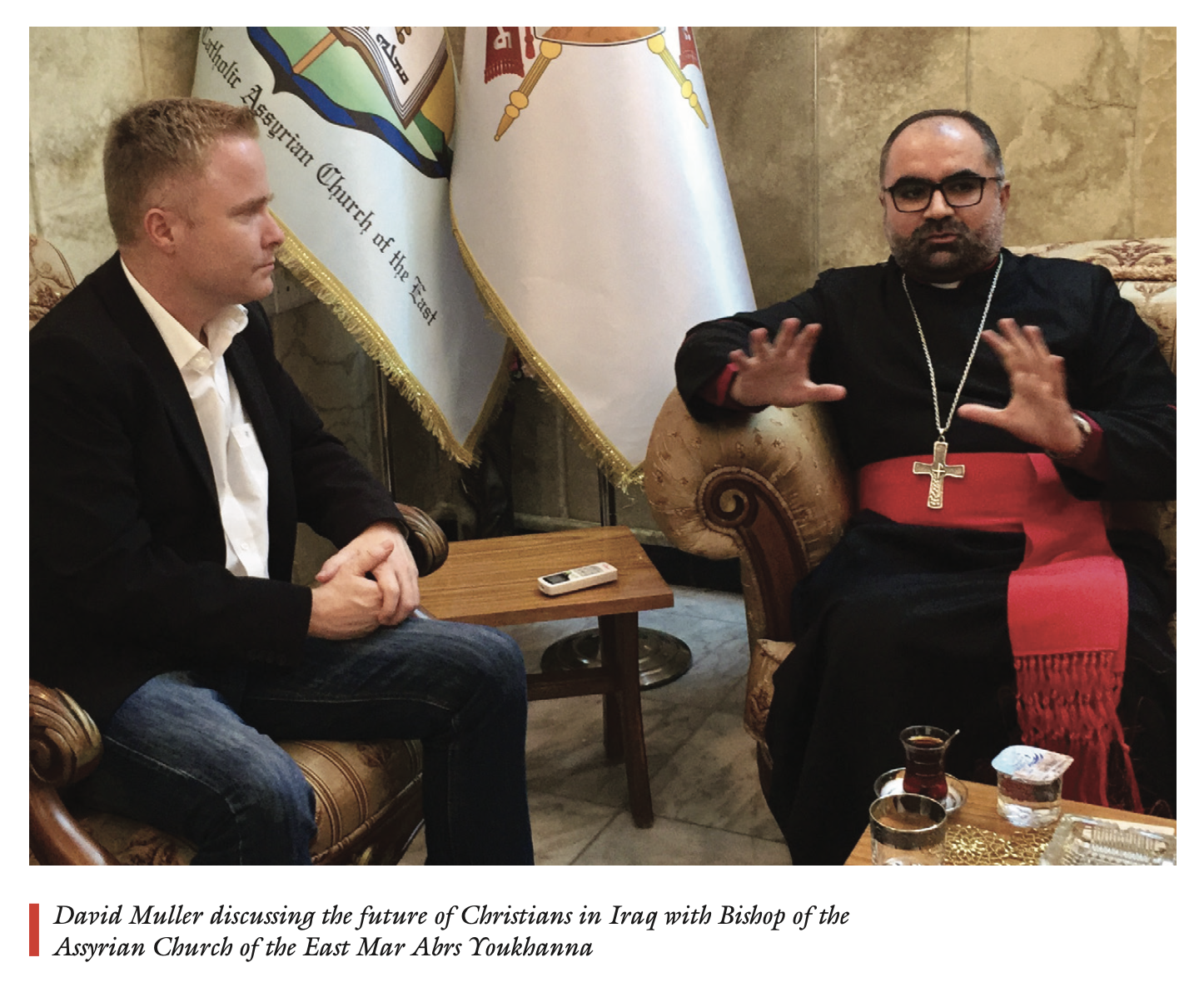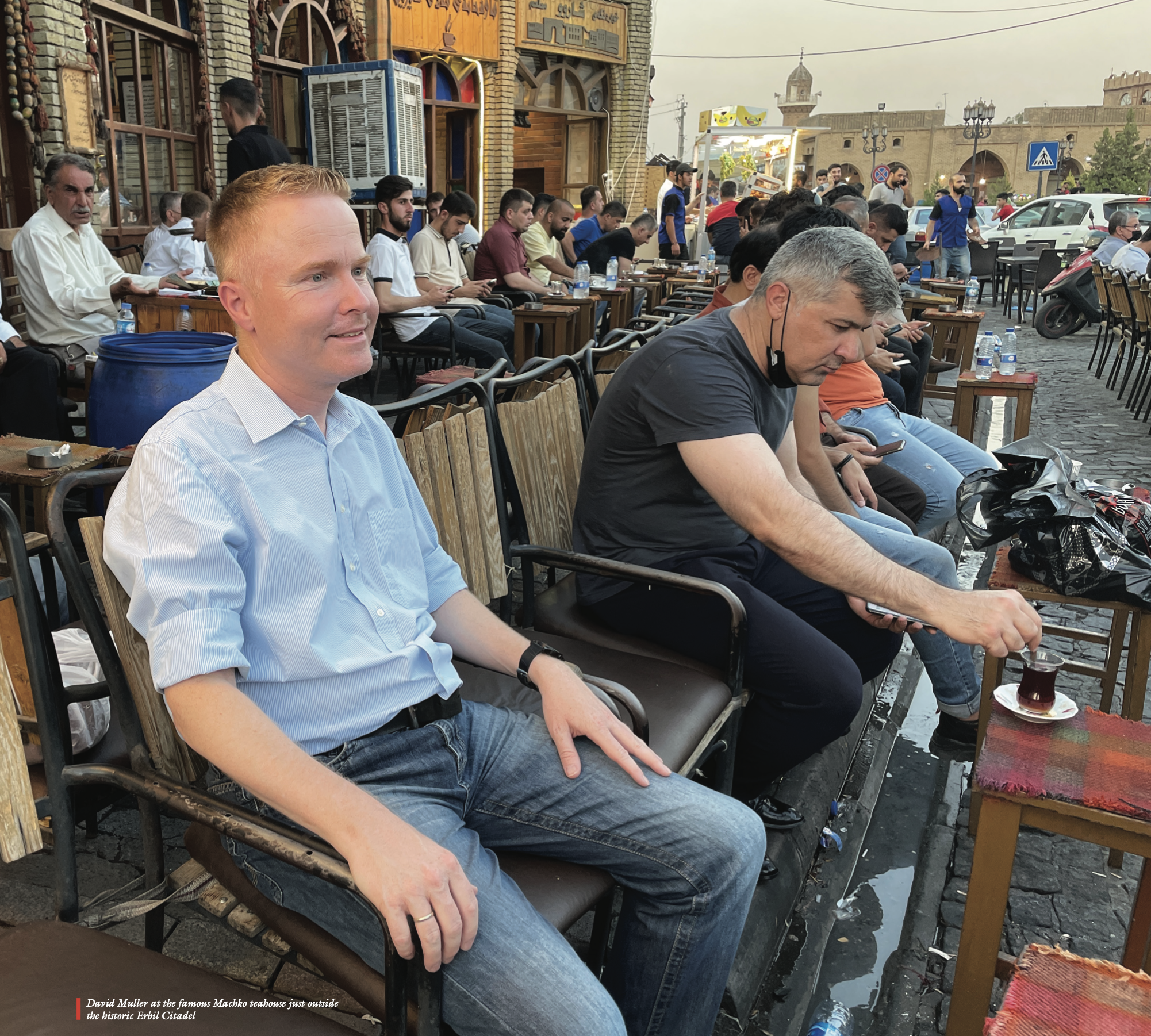The Kurdistan Region sincerely prizes the diversity of the peoples residing within its borders as a form of strength that underpins its vision as a political and social entity. Having experienced how religious differences can tear apart the social fabric of any country, its commitment to religious co-existence is resolute and historically grounded.
David Muller, an advocate for religious freedom in Iraq representing the German non-profit ojcos foundation, agrees. Muller underlined that the Kurdistan Region has been relatively progressive in terms of religious freedom and coexistence, especially when compared to other parts of the Middle East.
“I have been visiting the Kurdistan Region of Iraq regularly for several years as part of our foundation’s commitment to understanding and supporting the region. The resilience of the region and the warmth of its people are deeply inspiring. The rich history and cultural diversity make it a unique place that offers valuable perspectives on coexistence and regional politics,” he said.
“I believe more Germans should visit to appreciate its historical significance and current geopolitical dynamics, which are often misunderstood in the wider context of Middle Eastern affairs.”

Muller also spoke at the Kurdish House Davos during the Annual Meeting of the World Economic Forum (WEF) in January 2024. “The Kurdish House at the WEF in Davos was a warm and attractive business card for the region. A welcoming atmosphere with tea and Kurdish snacks allowed for an inspiring exchange between various Kurdish leaders and global actors,” Muller recounted.
“The Kurdistan Regional Government (KRG) has generally supported legal frameworks that respect diverse religious practices. There have also been concerted efforts to rebuild communities, protect minorities, and foster an environment in which different religious groups can practice their faith openly and safely. However, challenges remain, and continued support and vigilance are needed to maintain and improve these conditions,” he underlined.
“In Germany, our activities include engaging with political, religious, and civil society actors to inform and influence policy decisions. Our relationship with the German government is collaborative, as we work to create understanding between Iraq and Germany on religious and cultural complexities,” he added.

New concerns, new vigilance
In March 2024, Germany’s Federal Government Commissioner for Freedom of Religion or Belief Frank Schwabe sounded the alarm on religious freedom conditions in Iraq. “Key concerns include systemic discrimination, targeted violence, and the precarious political and security environment. The alert underlines the urgency of international attention and action to protect these vulnerable groups and support Iraq’s progress toward a more inclusive and secure society,” Muller said.
In February, Iraq’s Federal Supreme Court removed 11 quota seats for religious minorities in the Kurdistan Region Parliament. “The Federal Supreme Court’s decision to remove quota seats from the Kurdistan Region Parliament raises serious concerns about the representation and political participation of religious minorities within the region, “Muller said. “These seats have been an essential tool to ensure that different groups remain visible and influential. Their removal could weaken political stability and increase the risk of marginalization.”
“In a multi-layered and ethnically diverse area such as Kurdistan Region, it is crucial that all groups are adequately represented in order to promote inclusive and peaceful governance.”
However, on May 21, Iraq’s Electoral Judiciary Council restored only five quota parliamentary seats to religious minorities in the Kurdistan Region. This decision led to discontent among party leaders from these minority groups, with two quota seats allocated for Erbil, two for Sulaymaniyah, and one for Duhok.

On May 10, the U.S. Under Secretary for Civilian Security, Democracy, and Human Rights Uzra Zeya also warned against the influence of militias preventing the return of internally displaced persons (IDPs) to the disputed territories of Sinjar and Nineveh.
“Under Secretary Zeya’s statement about the negative influence of militia groups in Nineveh and Sinjar underscores a profound problem affecting the stability and security of the region,” Muller said.
“These militias contribute to an atmosphere of insecurity and fear that not only hinders the return of IDPs but also jeopardizes long-term peace and reconciliation. It is important that the Iraqi government and the international community work together to reduce the presence and influence of these groups.”
In October 2020, the Iraqi federal government and the KRG signed the Sinjar Agreement with support of the UN. The agreement has yet to be implemented.

“Its implementation is essential for the recovery and reconstruction of Sinjar, which is mainly inhabited by Yezidis, who have suffered immensely,” Muller said. “Effective implementation would facilitate much-needed security, reconstruction, and reconciliation efforts. However, it will require the genuine cooperation and commitment of all parties, together with international support, to address the complex socio-political challenges and ensure that the rights and needs of the Yezidi community are met.”
He also added that the Iraqi government’s intention to close all IDP camps by July 30 raises significant questions about the safety and viability of Yezidis returning to Sinjar.
“Despite progress in some areas, many parts of Sinjar are still badly damaged and not ready for a large-scale return of the population. Infrastructure, access to basic services such as water and electricity, and security remain inadequate. The decision to close IDP camps should be based on a careful assessment of the current conditions and the capacity of the region to ensure that returnees can return to a safe and sustainable environment,” Muller said.
Wladimir van Wilgenburg is a seasoned reporter and analyst who specializes in Kurdish affairs, and holds a Master’s degree in Kurdish studies from Exeter University.